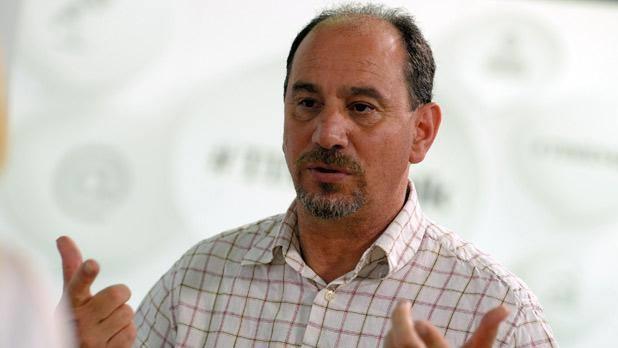Two of the three chairmen of the conjoint Parliamentary Committee of Health, Family and Social Affairs, which could end up discussing Euthanasia next October, are against it, with the third having not yet taken a personal position.
Dr Godfrey Farrugia and Dr Etienne Grech both expressed an opinion against euthanasia, while Anthony Agius Decelis wants to learn more before making up his mind.
The issue of euthanasia came to the fore when the Parliamentary Family Affairs Committee was discussing the issue. ALS sufferer Joe Magro had said, during the committee: “It is you (the individual) who has to take the final decision about whether you should live or die. Obviously there has to be valid reasons for wanting to end your life, but in circumstances such as mine, I believe that I should have the right to choose what happens next. If euthanasia is not brought into legislation, I can commit suicide however I want to explore this avenue (euthanasia) before resorting to that”.

PL Whip Godfrey Farrugia said that “It is the intention of the conjoint Parliamentary Committee of Health, Family and Social Affairs to delve into these issues (of euthanasia) next October, after the Summer recess”.
This newsroom called the three Chairmen of the committees, who rotate leading discussions in the conjoint committee, and asked for their opinions on euthanasia.
PL Whip Godfrey Farrugia, who chairs the Family Affairs Committee, is against the idea of Euthanasia, and is of the opinion that the number of ethical issues which are presently publicly discussed have one common denominator, “we are commoditizing on life”.

Dr Farrugia explained that he is “in favour of a dignified pro-life that safeguards the universal human right to life”.
Dr Farrugia said that there are medical encounters both in primary, secondary and tertiary health care when a terminally ill patient's prognosis is one that does not offer further services which will instil hope to the betterment of ones well-being. “In these instances dignified palliative care (love and tender care) is the line if management until death occurs naturally. Patients are always part of this management process and in these situations the way forward is explained to patients and/ or relatives”.
He explained that there are situations that arise when new possible forms of treatments are not started or during the course of ones health management, or where medicines are stopped because the side effects / disadvantages far outweigh the health benefits.
“This, however, is a very different story from a request to quicken death by assisting in the termination of ones life through suicide”.

PL MP Anthony Agius Decelis, who chairs the Social Affairs Committee is of the personal opinion that individuals should be given more rights and freedoms to do what they want to do, and that government should not interfere in the personal lives of individuals. “So I am in favour of more rights and freedoms, however I have not thought on this particular issue in detail, or as to where the line should be drawn”.

PL MP Etienne Grech, who chairs the Parliamentary Health Committee, explained that the PL has no intention of taking a position on the issue, but rather only intends to listen. Personally, however, he is against euthanasia.
“There are situation which occur in general practice and especially in hospital, where for example there would be a patient who suffers from muscular degenerative disorder like ALS and that person would require ventilation during the advanced stages of the disorder at the ITU. Doctors would then have a dilemma, trying to decide whether it is worth putting this patient on ventilation, where at times the person would have to be sedated, in order for the patient to live for an extra three months or so”.
Dr Grech feels that such decisions as the above should be taken by the patients themselves, and that is why he wants to push for debate on the living will. “I believe such a decision, whether to receive such treatment to live a few extra months when in such a grave situation, should be taken by patients themselves when they are more lucid years before they reach that situation”.
A living will is a written consent form which allows a terminally ill patient to decide not to receive treatment, should their state deteriorate to unmanageable levels.
“Through this, we are not talking about giving medicine which would kill a patient, but the living will would help guide doctors as to the kind of treatment patients would like to receive when they are at such a grave stage. There are times currently when doctors would not know if a person would want to prolong his agony through such treatment, or not”.

Speaking with this newsroom last week, ALS sufferer Bjorn Formosa believes that before jumping the gun with regard to euthanasia, a first step must be taken – introducing a living will for patients.
Mr Formosa said that his perspective is that he wants to live. “Without life you cannot do anything. The thing is when you get into a dire situation, it is difficult to take such a decision on whether to end your life or not. There is always a bit of hope that things could improve for the better, so it is hard. I mean with ALS sufferers you have some of the highest rates of euthanasia”.
Dr Godfrey Farrugia was also asked about the living will, and said that a living will for patients is different from euthanasia, but may help define fine lines.